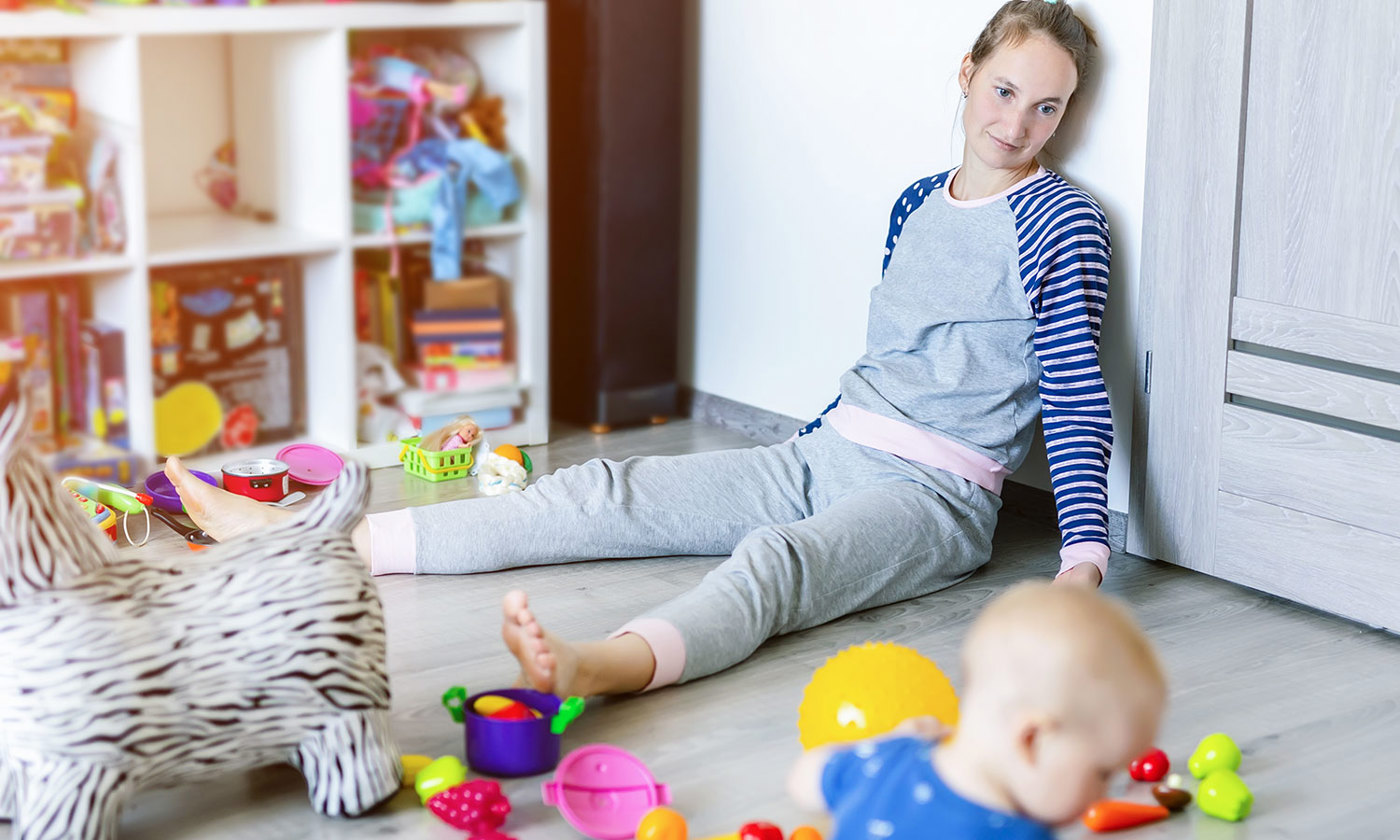Like what you see?
Sign up to receive more free parenting advice.
Thank you for subscribing to our newsletter!
Lifestyle

Stock photo ID:1143719115
Parenting is inherently messy and noisy. For introverted parents it can be challenging to suddenly find you have a small person permanently needing your attention and that you’ve entered a world of play dates and mother’s groups.
Studies1 have shown introverts make excellent parents because of their empathy, listening skills and approach to conflict.
However, friction between the need for solo time and the social demands of parenting can leave some people conflicted. Wanting to be with your children, but also wanting to be away from them while craving valuable alone time to recharge your batteries, may lead to feelings of guilt.
The American Psychological Association defines introversion as an, “orientation toward the internal private world of one’s self and one’s inner thoughts and feelings, rather than towards the outer world of people and things”.
“It’s not that people who are more introverted are anti-social, but rather that they have a preference for spending alone time, preferring quiet to loud noise, having close relationships or one-on-one time rather than interacting in large group situations,” explains Macquarie University, Department of Psychology, Associate Professor Simon Boag.
“So, you can understand that with young children, who can be quite dependant on their primary caregiver and are often naturally raucous and loud, that can be a potentially challenging situation for someone who finds that environment overstimulating.”
Dr Boag highlights that introversion, and its counterpart, extroversion, are on a sliding scale when it comes to a person’s personality.
Another key point is while introversion and extroversion are important components of personality, we need to understand how they relate to the entire constellation of personality traits and emotions.
For example, being shy and being introverted are often, mistakenly, paired together.
“It is important to know that introversion and shyness are not the same,” explains Tamara Cavenett, President of the Australian Psychological Society.
“Introversion is a personality type whereas shyness is an emotion.
“An example is that introverts don’t choose to skip social events because they have strong negative reactions to larger gatherings in the same way that shy people do; they just prefer being alone or in very small groups.”
Introverts make great parents
Before we go on to the challenges that introvert parents can face, it is important to point out that it is not all an uphill battle.
“Being an introvert doesn’t put you at a parenting disadvantage,” says Tamara.
“Introverts often excel as they are thoughtful, self-motivated, insightful, introspective and empathetic which are all wonderful things to instil and develop in your children.”
Dr Boag points out a Finnish study which showed that introverted nurturing parents tend to have more family favourable environments, such as better communication within the family.
“The same study showed evidence to suggest that introvert fathers tend to be more child-centred or child-focused,” he adds.
“Broadly speaking, if you are more introverted, you are often more attuned to your inner world, and therefore potentially more reflective on your children’s inner world and more sensitive to their needs.”
The challenges introvert parents face
In many ways, our society is set up to favour extroverts, including while parenting.
“It’s easy as an introvert grappling with a more extroverted world, to feel guilty about needing alone time,” Dr Boag says.
“Particularly when the messages in society don’t promote recharging and alone time, especially if you are the primary caregiver.
“The overwhelming energy that naturally comes with young children can produce an over-stimulated environment and that can be quiet overwhelming for an introvert parent.”
Typical support networks, like mother’s groups, can also be confronting for introvert new parents.
“The school drop off is another potentially overwhelming situation,” adds Dr Boag.
“There are children swarming around, large groups of parents talking, it can be an intensely overstimulating environment that can be challenging for an introvert parent to navigate, especially if they are trying to form social connections.”
It’s not that people who are more introverted are anti-social, but rather that they have a preference for spending alone time, preferring quiet to loud noise, having close relationships or one-on-one time rather than interacting in large group situations.Associate Professor Simon Boag
Stay up to date with the latest news and articles from First Five Years
Thank you for subscribing to our newsletter!
How to make it in an extroverted world
Introverts may internally struggle to meet societal expectations or norms, particularly when those expectations are geared towards extroverts.
“It’s important to recognise your needs, take into account who you are as an individual and what is important to you,” Dr Boag explains.
“For introvert parents, recharging and being refreshed makes you a better parent.
“While finding that balance, especially as a parent, is tricky to manage, it is incredibly important.”
He says that while not all tips and strategies are feasible for every family, it is also important for introverts to recognise environments that they struggle in and try to find strategies that best suit their family.
For stay-at-home parents, it is important, if possible, to try to carve out some alone, quiet time in the day to offset the overstimulation that naturally comes with raising young children.
One example that introverts sometimes find useful is to wake up before the children.
“Rather than waking up with the child or children who are immediately engaging you, starting the day with some quality alone time to adjust to the day can really help,” he says.
“Understandably, this isn’t always possible for those with children who wake up very early.”
For parents with children who take naps, he suggests putting the daily chores to the side (if possible) and utilising that time to recharge and have a break.
“Another strategy some introverts sometimes find useful is to try capitalise on times when your child has some unexpected quiet time and being sensitive to when they occur and maximise those few moments,” he adds.
One such moment can be while going for a walk.
“Put your headphones in when you put your children in the pram and go for a walk,” suggests Tamara.
“Even getting 20 minutes to yourself makes a difference.”
Tamara also recommends planning quiet activities to do with your children.
“Find activities that work for you and your children, like reading books, doing puzzles or painting, and invest time in those activities every day.”
Both Tamara and Dr Boag recommend having clear schedules and routines which provide a sense of predictability, which also provide introvert parents the chance to create some alone time.
“For those with a partner or support system, it’s also very important to make sure they understand your need for alone time, so make sure you communicate this to them so they can support you in the way you need it,” Dr Boag adds.
When it comes to those large social group situations that parents face, such as mother’s group or birthday parties, Dr Boag recommends, where possible, introvert parents look for alternatives.
“Loud, stimulating environments like a mother’s group might not be what you need, but an alternate social engagement could be library story telling time which is a quieter environment,” he says.
“Instead of group play dates, organise individual play dates.
“Choose the environment that best suit your needs.”
1 The moderating effect of extraversion on the relation between self-reported and observed parenting, 2005






